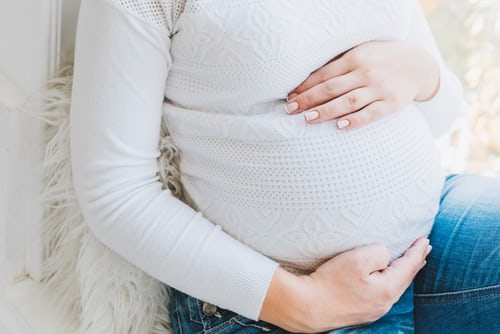University is studying maternal opioid use on developing infants.
A new University of Oregon (UO) study led by human physiology associate professor Adrianne Huxtable is examining the effects of opioids on developing infants. The research focuses on the effects of these drugs on essential breathing circuits during pregnancy.
“There is currently many as 42 percent of pregnant women in some states using opioids,” according to Huxtable. “An infant exposed to maternal opioids is born approximately every 15 minutes, which highlights the increasing prevalence of this population of infants and supports our scientific premise for studying the neonatal consequences of maternal opioids.”
She is looking specifically at “how neural circuits are affected by things like inflammation, early life stressors, and now substance abuse.” She said, “I was especially interested in studying opioids because we know it causes such profound depressive effects on breathing. But less is known about what happens to infants who are exposed to opioids during pregnancy, especially when they are exposed to opioids alone and not in conjunction with other substances or stresses.”

The lab is using two different litters of rats, a control group and one for testing. Using the rats will allow her to test these effects without any other contributing factors that are commonly present in humans. The model also allows her to directly measure breathing after opioid exposure, which cannot easily be done in humans. She is focusing on methadone use, because this is the most commonly prescribed opioid, and is interested in documenting the effects of this opioid in late gestation.
The UO researcher’s preliminary data shows that “when newborns are exposed to opioids there are more periods of disruption to their breathing and for longer amounts of time, clinically described as apneas,” she said, adding, “Our results demonstrate deficits in breathing, impaired maturation of breathing circuits and suggest a unique window of breathing vulnerability. Breathing is less stable after maternal opioid exposure…When infants experience these disruptions to breathing, they could lead to other nervous system and developmental delays, which can have profound consequences.”
Last year, after the onset of the global pandemic, UO psychologist Jen Ablow partnered with an international team of researchers to study looking at how COVID-19 is affecting birth, pregnancy, and parenting, in general.
“We already know that stress can impact birth and developmental outcomes and have lifelong implications for the child,” Ablow said, explaining that her study “explore(s) how the effects of stress are augmented during a pandemic and how a variety of different factors and timelines play out for the parent and infant…Parents have had to consider many changes to their birth and parenting plans, including new restrictions on the number of people that can be present during a hospital birth, the inability to access their planned care options after delivery, which often involve an infant’s grandparents or other relatives, and loss of employment or food security during the pandemic.”
Many parents are experiencing compromised mental health during this time, including stress-related symptoms of depression and anxiety. Ablow’s team would like to study women on an ongoing basis so to assess how their experiences have changed because of COVID-19.


Join the conversation!